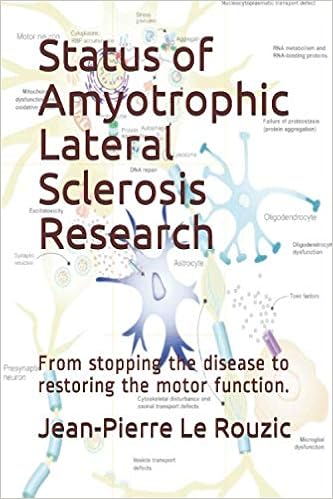What is interleukin 6?
Interleukin 6 (IL6) is a potent pleiotropic cytokine that regulates cell growth and differentiation and plays an important role in the immune response. Deregulated IL6 production is implicated in the pathogenesis of many diseases, such as multiple myeloma, autoimmune diseases and prostate cancer. In addition to other functions, interleukin 6 (IL-6) is involved in the development of immunological and inflammatory reactions. Autoimmune diseases such as rheumatoid arthritis are associated with abnormally high levels of IL-6.

How does it work?
IL-6 had previously been classified as a proinflammatory cytokine, but the anti-inflammatory (beneficial) effects of myokines in general of interleukin-6 of muscle origin are now recognized. So we have a cytokine that can have two modes, one beneficial, the other deleterious, how is that possible?
The explanation could be that the signaling pathways upstream and downstream of IL-6 differ markedly between myocytes and macrophages. It appears that unlike IL-6 signaling in macrophages, which depends on activation of the NFκB signaling pathway, intramuscular IL-6 expression is regulated by a signaling cascade network, including Ca2 + / NFAT and glycogen / p38 MAPK pathways.
IL6 has 2 signaling paradigms: IL6 signaling and IL6 signaling. Although conventional IL6 signaling occurs via IL6 receptors bound to the membrane, IL6 retransformation is induced by a systemic and localized increase in the extracellular soluble IL6 receptor (sIL6R). generated by proteolytic cleavage, called "shedding," of the receptor from the cell surface. These soluble receptors can be activated by IL6 and activate signaling cascades. Thus, IL6 trans-signaling activates the IL6 signaling pathways in cells that do not express the IL6 receptor.
Are there different reactions to IL6 in humans?
In humans, there are at least two alleles for the IL6 receptor (Asp358Ala, A / C, rs2228145), the A allele (Asp358) being the main allele and the C allele (Ala358), the variant allele. The expression of the IL6 receptor (IL6R) is favored by the C allele. In individuals with IL6R allele, increased receptor expression improves both localized and systemic IL6 transsignalization in the presence of IL6. This allele is associated with certain diseases such as asthma.
Why would IL6 have an interest in treating ALS?
Perhaps because a patient with ALS was reported to have had a remission in 2014 by consuming lunasin, a soy peptide, researchers have wondered whether IL6 transsignalization could play a role. potential in ALS.
How did the scientists proceed?
IL6 and sIL6R levels were measured in samples in a cohort of patients with ALS and compared to healthy patients. Their results suggest that the IL6R C allele influences IL6 signaling in the central nervous system of patients with ALS. In a second cohort of ALS subjects with more definite clinical data, the presence of the IL6R C allele was associated with a more rapid progression of the disease. These results suggest that identifying patients with the IL6R C allele may provide useful information for predicting disease progression and identifying those who may benefit most from IL6R blocking therapies.
What happened in 2014
ALS experts will recall that in 2014 Mike McDuff, who has ALS, experienced dramatic improvements in speech, swallowing and strength.
Dr. Bedlack from SLA Duke Clinic confirmed that Mike McDuff's symptoms had actually improved dramatically. A clinical trial was then conducted to evaluate the interest of lunasin in the case of ALS. Fifty people with ALS were put on the diet containing exactly the lunasin Mike McDuff had followed and were followed for one year. The clinical trial was completed in September 2017. Unfortunately, there is no evidence that lunasin slowed, stopped, or reversed ALS in clinical trial participants. Gastrointestinal adverse events were more frequent than expected in the trial participants, including cases of constipation severe enough to warrant hospitalization.

